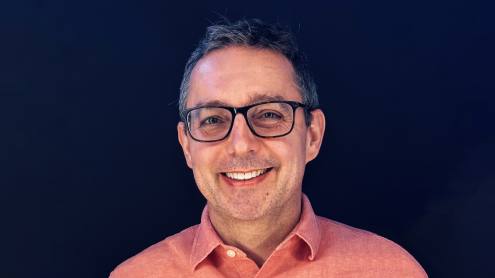Not quite a year into his leadership, Huw Jenkins, chairman and CEO of UBS Investment Bank, already has a great deal to look back on. Since he took the helm, the bank has acquired ABN AMRO’s futures and options business, announced in May the acquisition of Brazilian investment bank Banco Pactual, brought the remaining shares in Russian investment bank Brunswick UBS, taken a stake in Beijing Securities, and begun a joint venture in Chinese asset management with the Chinese State Development Investment Corporation.
This was not what many analysts had expected. Some had voiced fears that they could see little upside to the UBS Investment Bank story under Mr Jenkins because John Costas, his predecessor, had already overseen the bulk of the investment banking build.
Strategic thinking
Mr Jenkins does not see things that way. “I owe John [Costas] a debt of gratitude,” says Mr Jenkins. “His timing was great. When he decided to leave, he left me with a great business that was on track for a record year, markets on the way up and nothing to fix. It gave me the luxury of several months to look at the business and decide what I wanted to do.”
There followed a three-month study of the business and where it stood in relation to the competition. There were two key pushes under Mr Costas: growing the US investment banking franchise and increasing UBS’s share of business with hedge funds, to which end he initiated the acquisition of ABN AMRO’s prime brokerage.
“As a result,” says Mr Jenkins, “while we had been good at countercyclical growth [building the investment bank during the bear market when other banks were cutting back], we had not invested in some of the things that were driving very profitable business at some of our competitors in 2004 and 2005, such as commodities trading, leveraged finance and emerging market fixed income products.”
Mr Jenkins and his management team therefore put in place a four-part strategy: investment in the growth businesses that the study had identified; investment in growth clients, such as private equity houses, hedge funds and private banks; further investment in scalable infrastructure, such as ABN’s futures and options business, to ensure that UBS could continue to exploit product commoditisation and globalisation in exchange traded derivatives, as it had done already in cash equities, FX and repos; and lastly, continued investment in the development of its staff and in the development of UBS’s group culture.
Emerging opportunities
With such a buoyant investment strategy, it is clear that Mr Jenkins is not one of the industry’s doomsayers, even when faced with tremendous emerging market volatility immediately after UBS committed to buy Brazil’s Banco Pactual for $2.6bn.
“I’m an equities guy, and we tend to be more optimistic,” Mr Jenkins says with a smile. “The recent turmoil is temporary and the industry is poised for another growth phase. It is impossible to travel round the world, see the macroeconomic stories and be pessimistic. What you do have to do is focus your energies in the right places and make sure you are in the right markets.”
Thus, despite the recent market sell-off, he believes the Banco Pactual acquisition (a deal that Goldman Sachs failed to seal last year) remains a good investment and a great fit for the bank’s emerging market ambitions. It makes UBS the second biggest arranger of stock sales in Latin America (behind Credit Suisse, whose purchase in 1998 of Brazil’s Banco de Investimentos Garantia took it to first place), and with a strong debt franchise – number one for government debt and fourth for corporate debt in Brazil – Pactual also goes some way towards plugging a serious gap for UBS, which had no fixed income presence to speak of in Latin America.
Equally important, Pactual’s structure, which includes an asset management arm that oversees $18.6bn for clients and a wealth management business that manages a further $4.6bn, marries well with UBS’s business and client mix.
The country’s future potential looks promising, says Mr Jenkins. Last year, Brazil’s economy, one of the 15 largest in the world, grew by 4%; the country accounted for 40% of the Latin American fees paid to investment banks and its stock market grew by 28%.
“Brazil has done a terrific job of repatriating external debt. It has steadily reduced its exposure to foreign currencies and external shocks. In the next five years there is a good chance that it will go to investment grade, further reducing the cost of domestic funding. It is a great macroeconomic story. On top of that, Pactual is a great bank that is a very good cultural fit for us. And the business mix is absolutely right for UBS.”
Family fold
The UBS group has a good track record of integrating businesses into the family. “One of the reasons is that UBS empowers the acquired firms to run a bigger platform,” says Mr Jenkins.
In this case, André Esteves, currently managing partner of Pactual, will be CEO and chairman of UBS Latin America; UBS has already put its Mexican business under Mr Esteves’s purview. Jurg Haller, currently global head of products and services for UBS global wealth management and business banking, will become chief operating officer, deputy CEO and deputy chairman of UBS Latin America operations, reporting to Mr Esteves.
“We are very committed to growing our Latin American business – as well as other developing markets,” says Mr Jenkins. “After about six months ‘bedding in’, we will beef up our Mexican presence [UBS has membership of the stock exchange but is in the process of getting a bank licence] and then we will look at opportunities in Chile and Argentina.”
Just as he is confident about the prognosis for the industry and global economic growth, Mr Jenkins is similarly positive about the potential for UBS’s recent build up in leveraged finance. He says it will enable UBS to generate significantly higher M&A business through involvement in the financing, more IPO business and to feed hedge funds’ growing appetite for high yield debt.
The bank has reworked its approach to sub-investment grade lending (bridging loans leading to high yield bonds), raising lending limits to make UBS more competitive; more importantly, it has restructured the process, delegating the final decision to an individual – such as the head of fixed income credit – rather than to a lending committee.
Gate crasher
Mr Jenkins shrugs off comments that UBS may be building the business at the top of the market. Is UBS too late to the party? There is always that possibility, he says, but it is unlikely.
“It’s about supply and demand. Last year, the private equity sector raised $180bn – if that is geared up five times, private equity firms have a trillion dollars to invest. That is plenty of demand. And we will not be the ‘dumb’ money; we will leverage our intellectual capital where we have competitive advantage. This includes areas such as chemicals, in which UBS has been involved in every IPO over the last two years, and infrastructure, where we are the leading underwriter of infrastructure funds globally.”
It is not the most important thing to always be first, he says; first mover advantage is overrated. “It’s very ephemeral. I would rather be a successful adopter.”
What is more important, says Mr Jenkins, is building and sustaining a business model that is able to adapt to change. “The real challenge these days is preventing your business model from being ‘clunky’. Central to achieving this is the creation of an integrated cultural identity that gives a business the support and flexibility it needs to respond to its environment.
“Culturally homogeneous organisations are far more flexible than rules-based businesses. UBS works hard to create that kind of group-wide identity.”
Even if UBS is not trying to match the kind of revenues generated from leveraged finance at firms like Goldman Sachs, some analysts have suggested that its leveraged business may be held back by one of the things that makes the group as a whole so successful: its private bank.
Last year alone it captured $100bn of new assets and, says one analyst, this kind of success is built on a steady income and stable reputation, not the kind of risk profile and earnings volatility that enables Goldman to make such spectacular returns.
“Of course, we have to be conscious of our responsibility to maintain a sound financial reputation and, from time to time, that may make us less aggressive than some of our competitors, but that’s no bad thing,” says Mr Jenkins. “One can be innovative and aggressive at the same time as being responsible.”
Radical streak
Equally, the bank has already taken steps into areas that will bring some volatility – such as its investments in Bank of China and Pactual, and the establishment of Dillon Read Capital Management – and they have not deterred private banking clients, says Mr Jenkins. It must not be forgotten, he adds, that the client universe is changing at private banks as well as investment banks: many private banking clients may not be as conservative as expected.
“A lot of personal wealth is being created in emerging markets and in private equity firms and hedge funds, and many of those individuals may have a higher risk appetite or a greater understanding of how to manage risk. Responsible risk taking is as good for wealth management as it is for the investment bank.”
CAREER HISTORY:
2005: CEO, UBS Investment Bank
2004: Global head of equities, UBS Investment Bank
2000: Head of equities for the Americas, UBS Investment Bank
1999: Co-head of US equities, UBS Investment Bank
1998: Head of Asia Pacific equities, UBS Investment Bank
1996: Joined Swiss Bank Corporation (SBC)/Warburg Dillon Read
1997: Co-head of Asia Pacific equities, BZW
1996: Appointed managing director and head of Asian Equities, BZW
1987: Joined BZW
1986: Joined Hill Samuel
1984: MBA, London Business School
1981: Joined HSBC as a graduate trainee in Hong Kong






